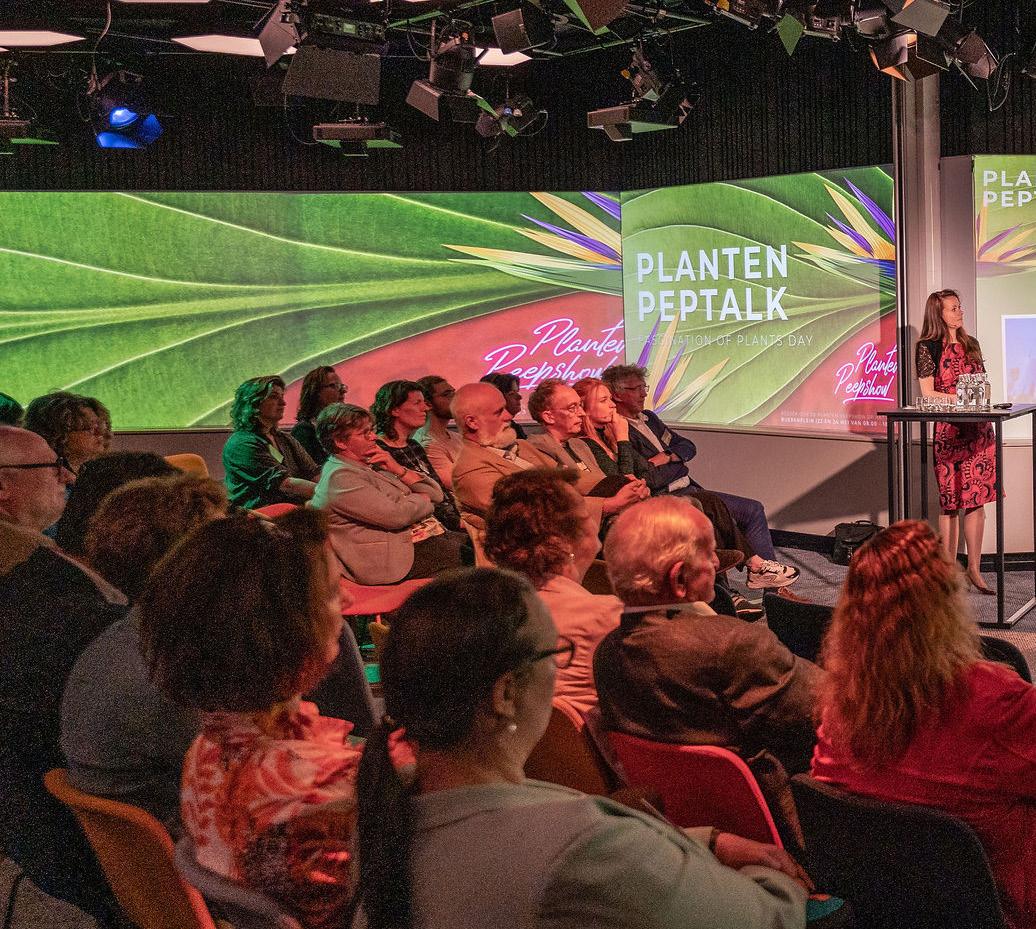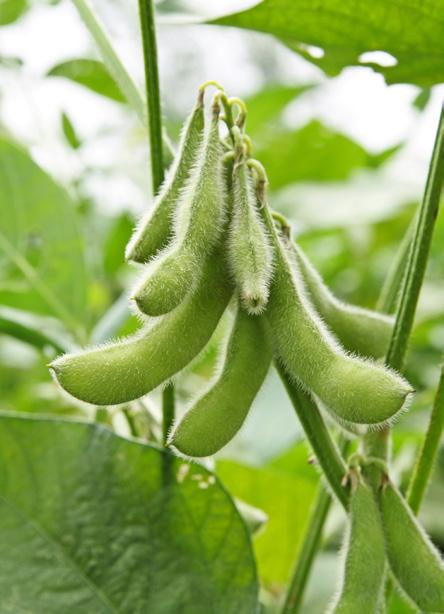
2 minute read
Make a landmark ‘plant to increase biodiversity for the future
Speakers at the Plantum Peptalk event, held in the Hague on 23 May, urged industry, universities, and government to sign a ‘landmark plant pledge’ to become genuine custodians of plants. They argued that the solution to any problem begins with plants. Plants help tackle global challenges. More plants mean more biodiversity, less nitrogen-based pollution, a healthier diet, and more well-being.
Plant Fact One
Advertisement
Moderator Esther Molenwijk announced Professor of IPlant Physiology at Amsterdam University Michel Haring as the first speaker. In his ‘What do we know about plants’-themed mini-lecture, Haring explained that from the 400,000 plant species on Earth, a meagre 1,000 had been brought into cultivation since the domestication of plants first began.
Adri
Bom-Lemstra, President of the greenhouse horticulture industry body
Glastuinbouw
Plants are immortal. Scientists have found a refugee population of seaweed aged around 16,500 years old. There is also a 9,500-year-old Norway spruce. This Picea abies has regenerated new trunks, branches, and roots over millennia, so it is a clonal tree rather than an individual tree of great age – but still very impressive survival.

The world has an estimated 50,000 edible plants. Just three of them, rice, maize, and wheat, provide 60 per cent of the world's food energy intake. Plants, Haring continued, adapt in many ways so that they can survive in different habitats. “So, take care of our plants. Today’s plant breeding is primarily conducted in a traditional context with little focus on root-soil interaction because farmers use fertilisers and pesticides. Resistance breeding and plant breeding driven by a good interaction between the soil microbiome and the plant is a future strategy for reducing crop losses and the dependency on chemical crop protection products.”
GREEN (PLANT) DEAL
Sijas Akkerman, director of Nature and Environment in the province of Noord-Holland, urged his audience to sign a ‘Plant Deal’. Increase biodiversity by using multi-crop

Nederland said: “Flowers and plants are vital for the Dutch economy. But apart from providing food, there’s too little attention given to the many benefits plants bring to our planet.” systems, alternate season crops and rotation. He also encouraged growing 500.000ha of Lupins instead of maize for cattle. “Lupins can take nitrogen from the air. As a sector, we need to step up and use plant-based products to tackle global challenges,” Akkerman said. Maria Geuze, director of Slow Food Youth Network, referenced the keynote speaker Haring’s presentation: “Today, 75 per cent of the world’s food originates from only 12 plants. Our Planet Earth cries for diversity and resilient cropping systems. Soil and humans thrive when there’s biodiversity. Food consumption must diversify, with a plant-based diet playing a
Plant Fact Two
Sugarcane is considered the most successful plant worldwide because it is used to make sugar and biofuel. Soya beans come second. An estimated 90 per cent of soya beans are grown to produce cattle food. Will this change in the next ten years?










